Signs of Depression: How to Recognize the Symptoms (In Yourself & Others)
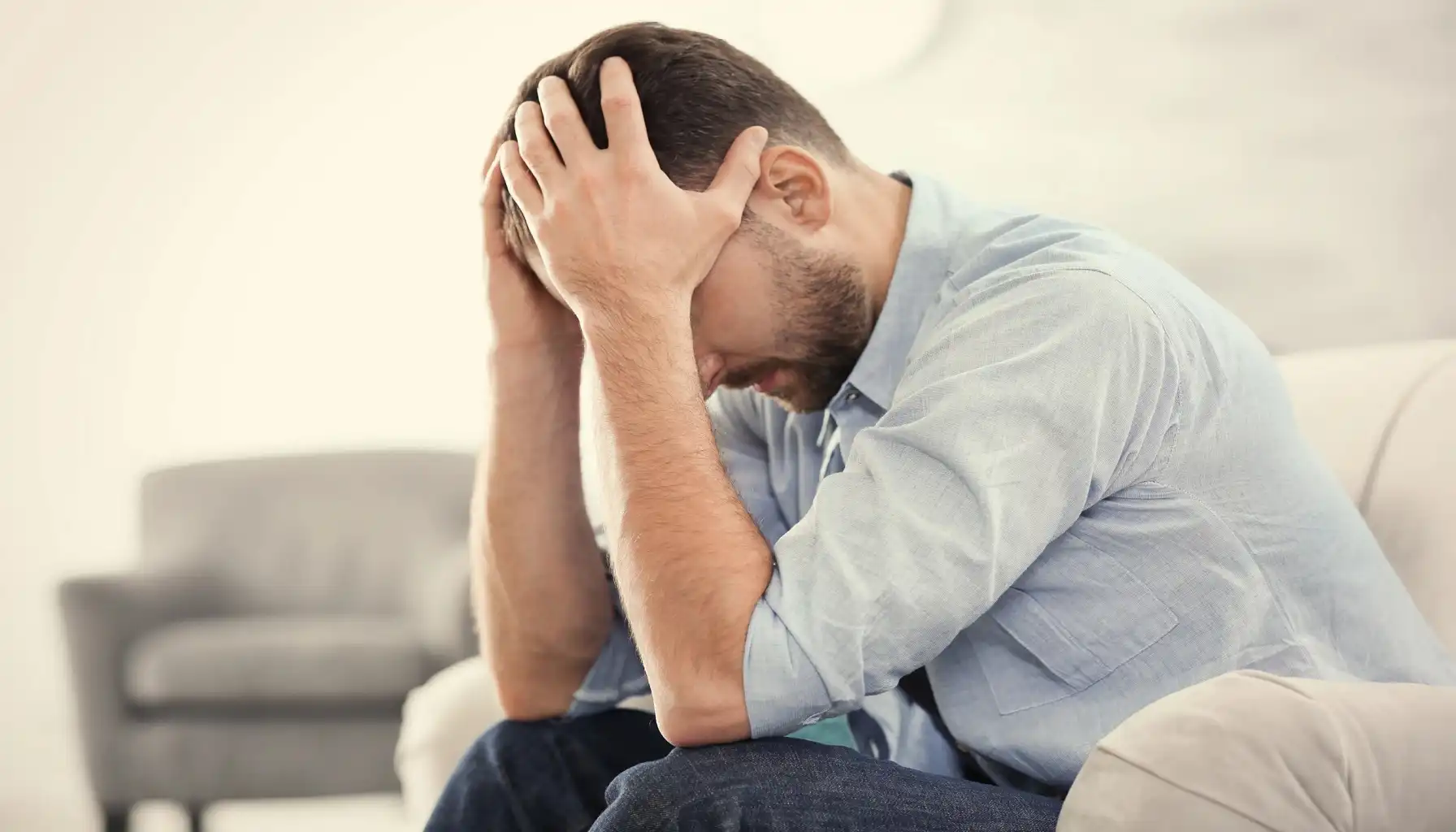
Depression is a very serious matter. It’s worse than being sad or tired. It’s a complex state that is hard to overcome. That’s why it’s important to diagnose the early signs of depression. Then it’s easier to recover.
What are signs of depression? We’ll give you over 10 signs of depression and where to seek help.
Online brain games stimulate your brain and help find peace in your mind.
What Is Depression
Depression is a serious mental health disorder that affects how a person feels, thinks, and behaves. It goes beyond normal sadness or low moods. It can interfere significantly with daily life, work, relationships, and physical health.

Depressive disorder can result from a combination of factors:
Biological: Imbalances in brain chemicals like serotonin and dopamine.
Genetic: Family history of depressive disorders.
Psychological: Low self-esteem, chronic stress, trauma, or grief.
Environmental: Abuse, neglect, social isolation, or major life changes.
Medical conditions: Chronic illness, hormonal imbalances, or certain medications.
It’s very important to identify depression at the early stages, where it could be treated more easily.
Depression Types
Depression comes in different forms. Some are mild and some are very dangerous, needing immediate identification of the signs and symptoms of depression.
Clinical Depression. The most common disorder. Signs of clinical depression include tiredness, sadness, and suicidal thoughts.
Postpartum Disorder. Affects some women after childbirth. Signs of postpartum depression include difficulty with baby bonding, guilt.
Bipolar Disorder or Manic Disorder. Affects people with bipolarity. Signs of bipolar depression include sadness mixed with risky, explosive behavior. Signs of manic depression show general unpredictability.
Seasonal Disorder. Triggered by seasonal changes. Signs of seasonal depression include a change in appetite and tiredness.
Psychotic Disorder or Severe Disorder. A very late case that requires immediate care. Signs of severe depression include hallucinations.
Persistent Disorder. A milder case that could be long-term. Signs of high-functioning depression include a constant low mood for many months.
Warning signs of depression are mostly similar, and depend more on the demographic and not the type of disorder.
How to Identify Depression
What are the signs of depression? We’ll go over various demographics and observe the most common symptoms. Just like some ADHD signs are easily overlooked, the same might happen with depression.
Signs of Depression in Women and Men

Women are more likely to be diagnosed with depression than men, almost twice as much. You can say that women are at the highest risk of developing this disorder. Women show certain symptoms more often or more intensely than men.
1. Emotional Symptoms
Women may show persistent sadness, anxiety, or "empty" mood and, contradictively, tearfulness or frequent crying spells in other cases. There’s a general feeling of being overwhelmed, hopeless, or helpless.
Signs of depression in men are more aggressive, usually. While men also feel persistent sadness or emptiness, they’re trying to hide it, usually behind anger. This increased irritability and frustration is a telling sign.
2. Physical Symptoms
Physical symptoms are similar for both genders. Men and women experience sleep disturbances (trouble falling or staying asleep, or sleeping too much). There might be changes in appetite or weight, usually overeating or cravings.
Fatigue seems perpetual, and men and women constantly feel tired. It might even lead to decreased libido.
3. Cognitive and Behavioral Changes
Depressed men and women have trouble concentrating, making decisions, or remembering things. They might want to withdraw from social or family life. They also might abandon their hobbies and neglect work.
While it’s common for both genders, usually men begin substance abuse (alcohol or drugs) as a form of self-medication and turn to reckless behavior (e.g., speeding, gambling).
Signs of Depression in Teens
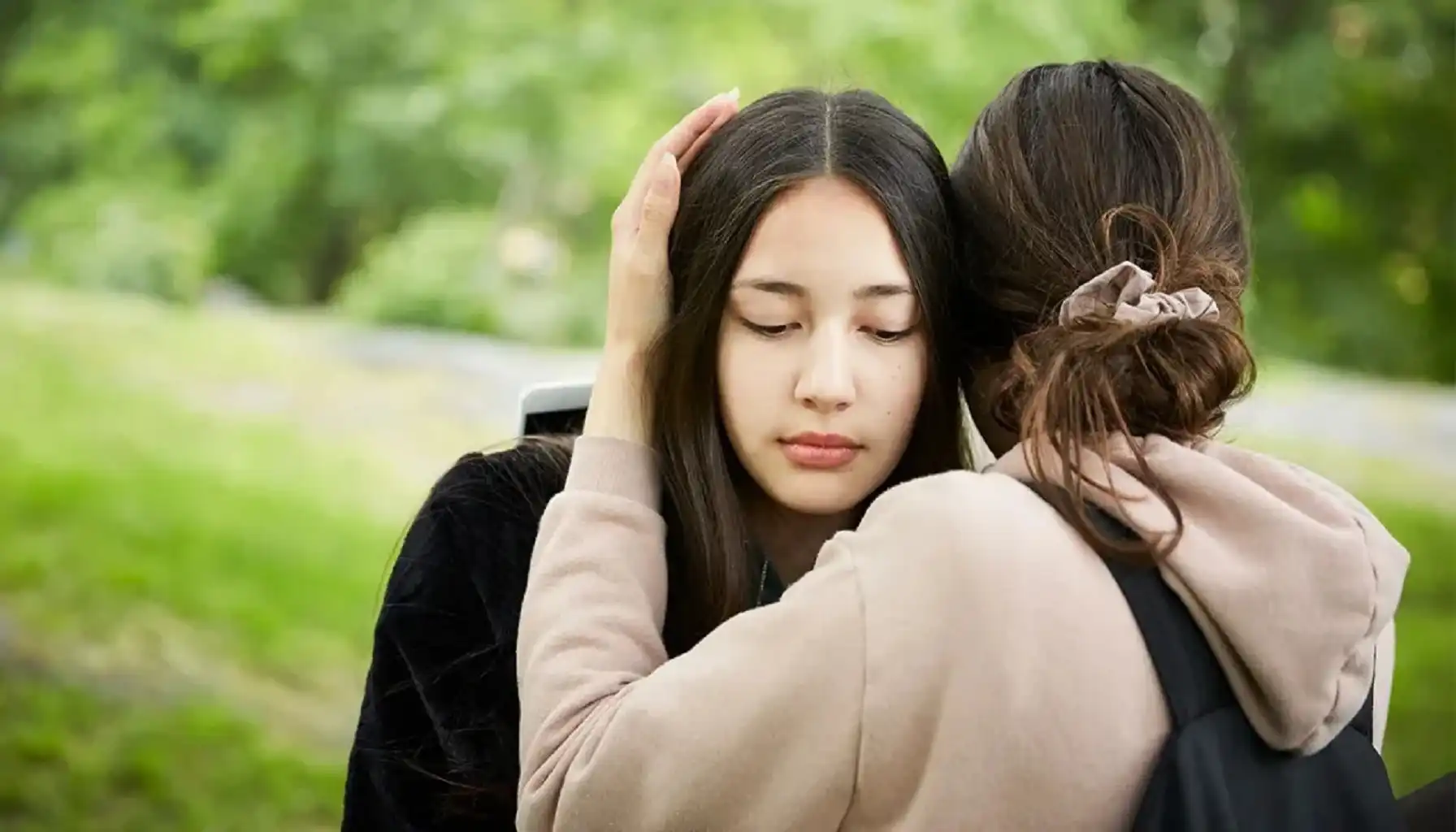
Depression in teens can look different from adult cases, often showing up as irritability, anger, or social withdrawal rather than just sadness.
Because teenagehood is a time of emotional change, it can be hard to tell the difference between normal teen behavior and depressed behavior. Still, there are some clear warning signs to watch out for.
1. Emotional Symptoms
Like adults, teens feel persistent sadness, emptiness, or tearfulness. Unlike adults, they more frequently feel worthless, guilty, or like a failure. It often results in teens starting to feel hopeless about the future.
Signs of teen depression include irritability, anger, or mood swings (more common than sadness in teens). Criticising them is not recommended, as teens feel personally attacked, and the disorder gets worse.
2. Physical Symptoms
Teenagers have frequent headaches, stomachaches, or other unexplained pains. Their appetite becomes unstable, and their sleep schedule is ruined.
Sleep affects brain performance on many levels, and with bad sleep, teenagers cannot grow properly.
Some teens, especially boys, might neglect their personal appearance or hygiene
3. Cognitive and Behavioral Changes
Depressed teens lose interest in friends, hobbies, school, or sports. It leads to isolation, and they get even more depressed.
As a result of bad sleep, diet, and mood, depressed teens drop in school performance and start skipping classes.
Signs of Depression in Kids
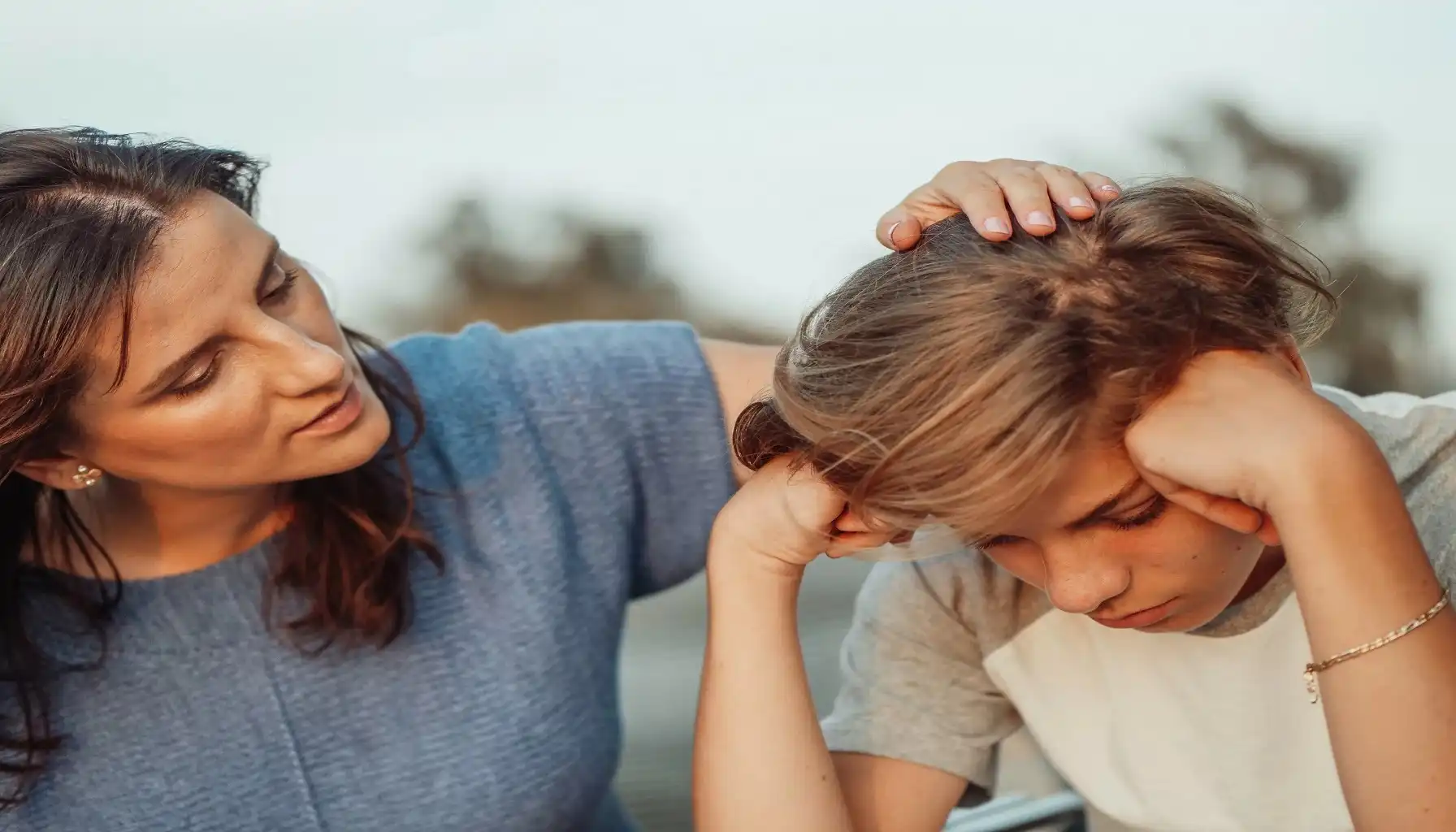
Even children might become depressed. Childhood should be a time of fun and safety. Parents must identify signs of depression and anxiety quickly and help their little ones.
1. Emotional Symptoms
Depressed kids feel persistent sadness. They are very tearful and cry more than other groups. Some show irritability or anger.
Like teens, depressed kids have low self-esteem. They might be too small for a concept of “success”, but they do feel “bad”, like they’re guilty of something. This hopelessness leads to feeling like nothing is fun anymore.
Ask kids fun questions, and engage with them. Usually, it’s the best remedy.
2. Physical Symptoms
Depressed kids display changes in eating or sleeping patterns. They might complain about headaches, stomachaches, or other physical pain.
3. Cognitive and Behavioral Changes
Depressed kids display trouble concentrating or making decisions. They become forgetful and are "spacing out" frequently.
Some severe signs of depression in children include talking about running away.
Signs of Depression in Elderly
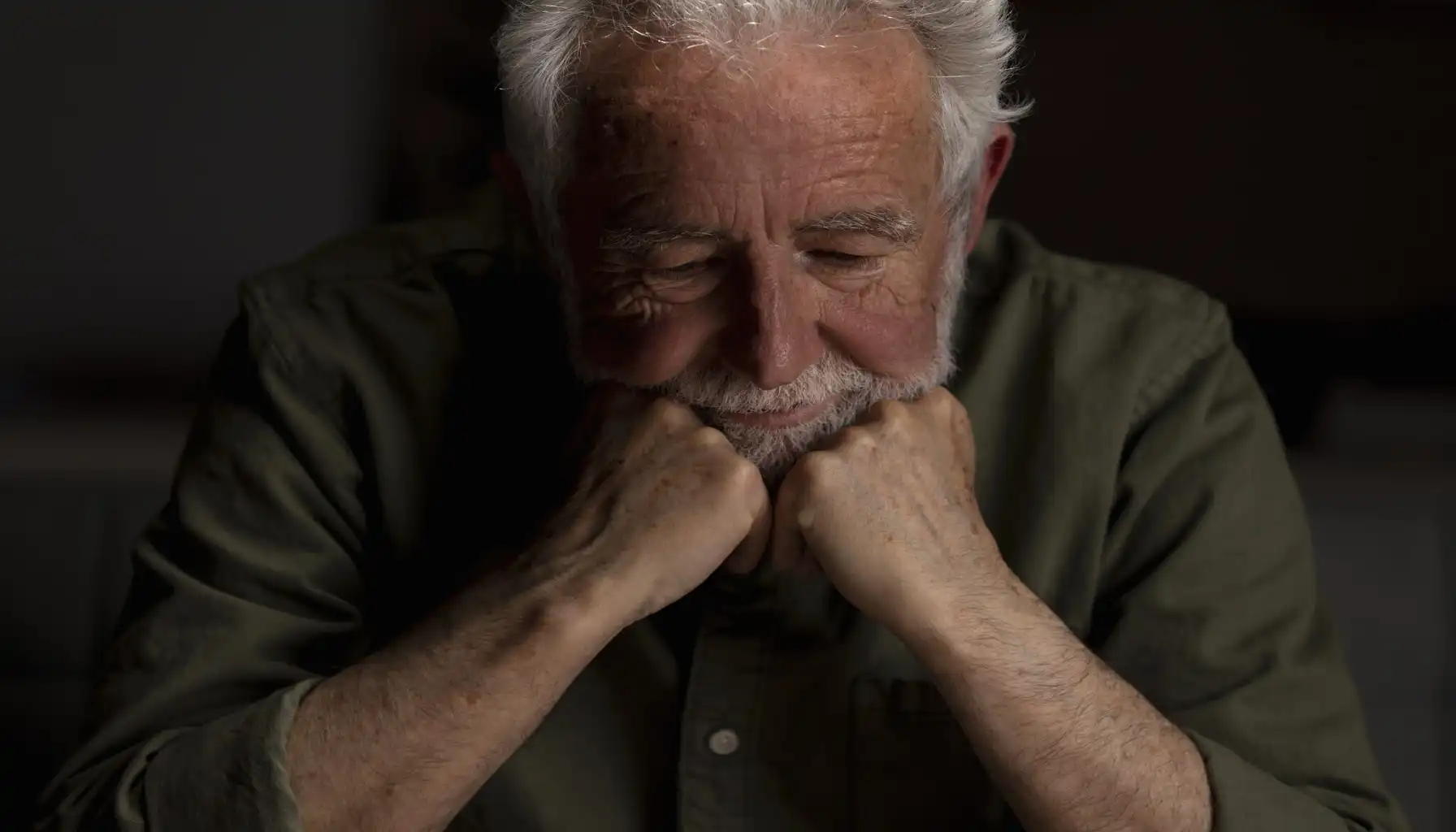
What are some signs of depression among the elderly? The elderly experience this disorder similarly to adults.
1. Emotional Symptoms
Depressed elderly show a loss of interest in activities once enjoyed. They often feel guilt, shame, and like a burden.
2. Physical Symptoms
The elderly display sleep changes. They have difficulty falling asleep, staying asleep, or oversleeping. They have a problem with mobility and might need coordination exercises.
Overall, physical signs of depression for seniors are similar to what most experience while aging, so it’s tricky to rely on them only.
3. Cognitive and Behavioral Changes
Depressed seniors might give away belongings, talk about death, or express suicidal thoughts.
Where to Seek Help
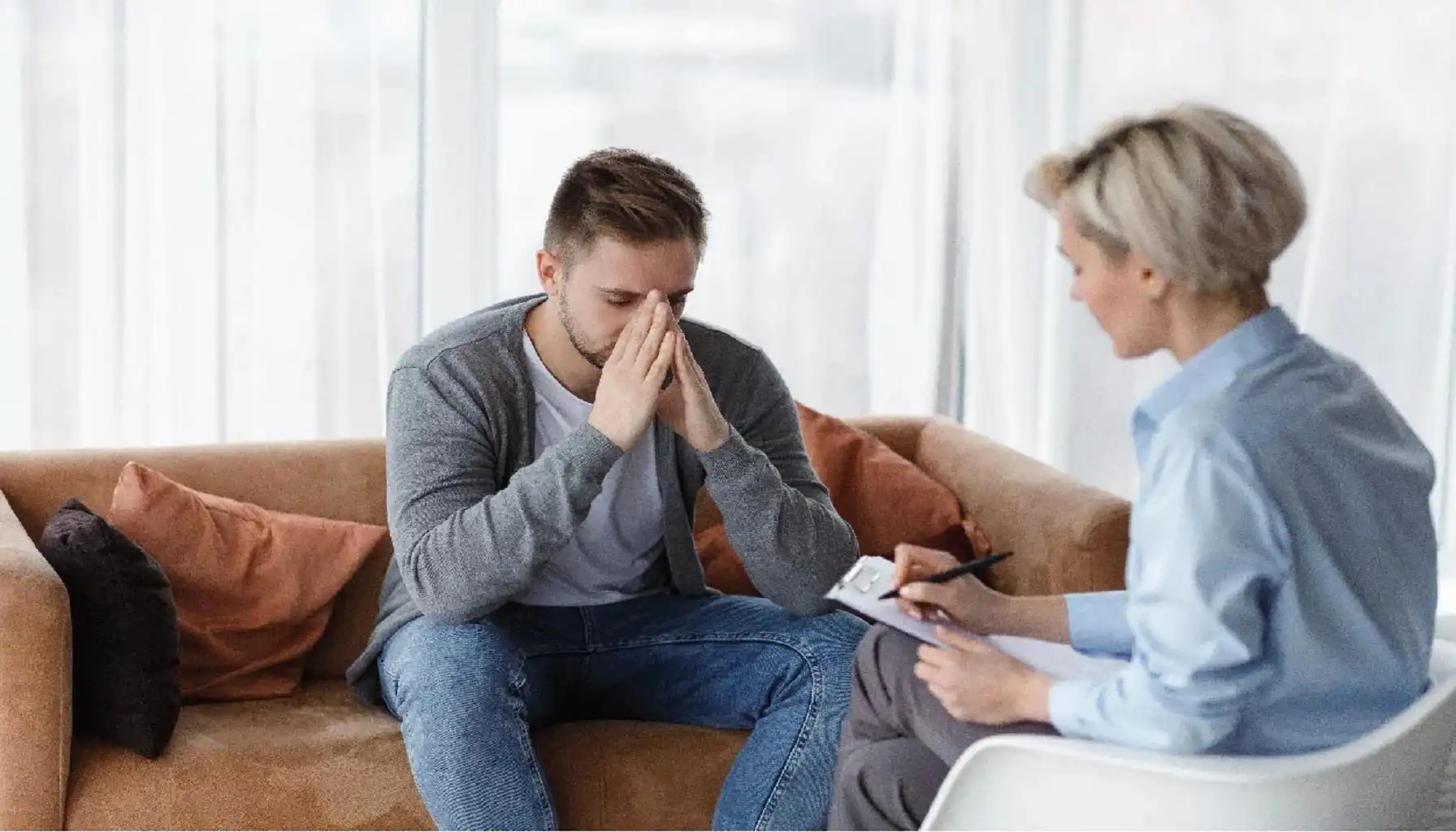
Have you found signs of anxiety and depression? You can find help by consulting:
A psychologist or therapist. They can diagnose you and offer support.
Mental Health Helpline. For example, 988 Suicide & Crisis Lifeline. They offer guidance and emotional support.
Your friends and family. They can’t diagnose you, but they can help you recover.
Life is hard, but it’s worth fighting for. You overcame many difficulties, and you’ll overcome depression too.
Mind Elevate
Mind Elevate is a cognitive‑training app available on iOS and Android.
Mind Elevate offers 35+ brain games and puzzles designed to enhance skills via memory, attention, logic, and musical and math games.
Depression might make your mind weak and tired, and an app like this offers a great respite from the world and its problems.





